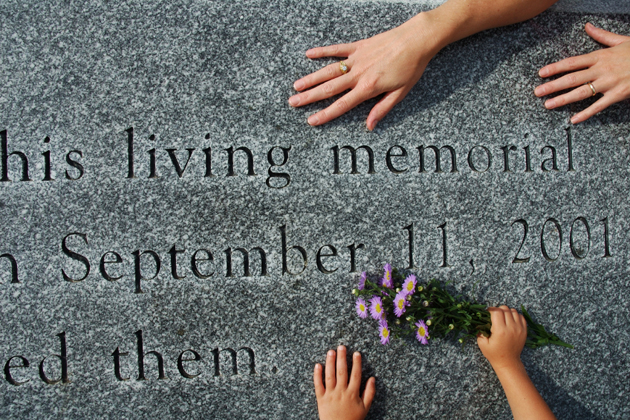In Hot Topics posts, UConn experts comment on current events and issues unfolding in the news.

With the 10th anniversary of 9/11 upon us, memorials are being planned country-wide, and the memories are flooding back to those who lived through the attack. But what people should do to honor the fallen takes on a completely different spin when it comes to the classroom. Is 9/11 an important topic for classroom discussion? What dilemmas do teachers face in presenting the topic to students? At what grade level or age should K-12 teachers begin to explore the event? And how should the lessons be delivered?
Alan Marcus, an associate professor of curriculum and instruction in UConn’s Neag School of Education, has worked with more than 70 social studies teachers in Connecticut on just that topic, and has developed an exercise using 9/11 memorials for teachers to use. He also has written articles on the task, and has authored a chapter in a book on teaching history through museums that discusses 9/11 memorials. He is an expert on teaching about contemporary and controversial issues.
“In the big picture, teaching about 9/11 in schools, especially social studies classes, is important because it’s helping teach the students how to participate as citizens in a democracy; it engages them in the public discourse; and it teaches them the impact of public policy, and contributes to their memories of the past. Current events – what’s happening in the world – is what social studies is all about, and 9/11 allows them to see the connection between the past and present.
“How to teach it does present several dilemmas, though, both big and small. Perhaps the largest is the question surrounding lived memory versus learned memory. For all the teachers, and perhaps some high school seniors, 9/11 is a lived memory. For most other students, it’s a learned memory – they have no memory of the event except for what they learn in school or at home. This creates a disconnect between how teachers (and parents) and their students understand the event.
“Second, how do you balance remembering the victims and the first responders, and actually studying 9/11 and putting it into an academic context – for example, how 9/11 provides context for the wars in Iraq and Afghanistan? Especially this year, the 10th anniversary, when so much attention is being paid to the memory of the victims? In the tri-state area, especially, some students may have lost parents or friends during 9/11. Teachers have to be sensitive.
“Academically, this is such a rich opportunity for a teachable moment. It teaches history broadly, in the context of war, the Patriot Act, civil rights issues, military tribunals. These are all current and controversial today. Again, it teaches the students about democracy and engaging in the public discourse.”
Contact information for members of the media:
Alan Marcus, associate professor of curriculum and instruction
UConn Neag School of Education
Phone: 860-486-0281 (office) or 860-420-9705 (cell)
Email: Alan.Marcus@uconn.edu



